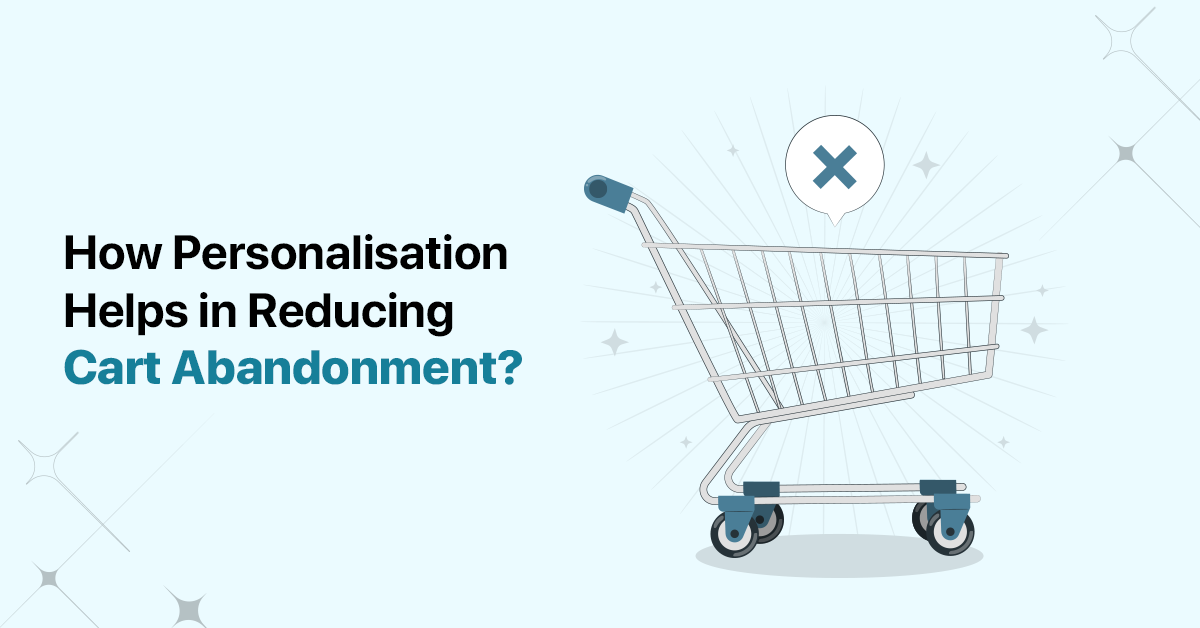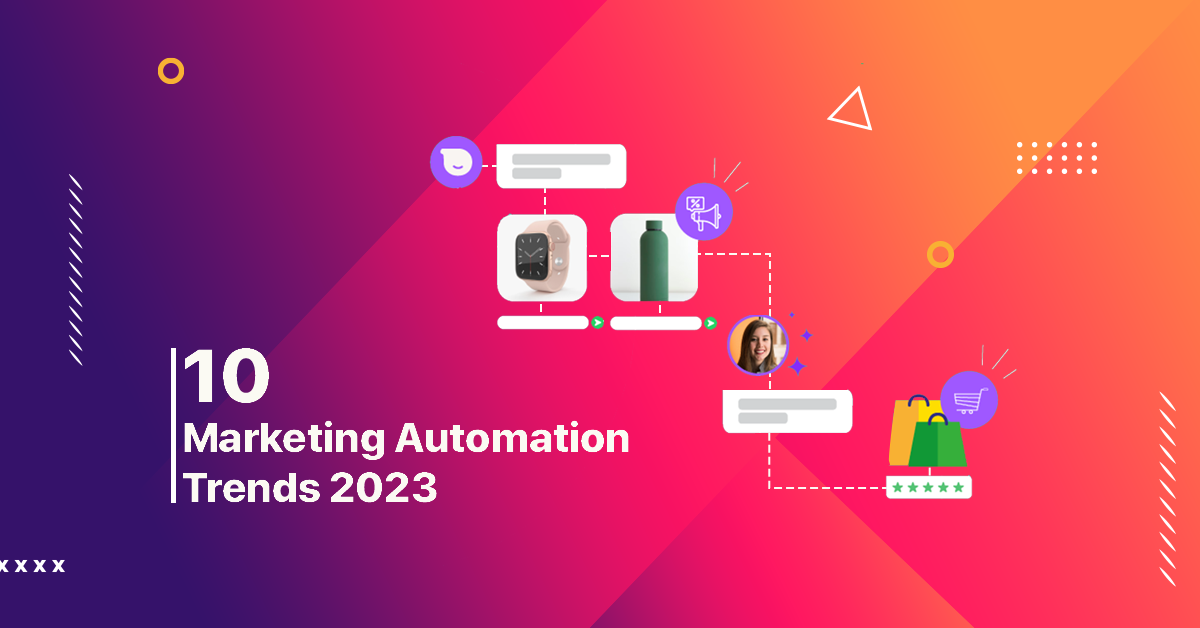Fast-growing firms that want to reach and maintain engagement with their target demographics can’t succeed without marketing automation. 51% of businesses presently use marketing automation in some capacity, according to statistics. According to the same poll, more than 58% of organizations want to employ technology in the following years. Although it seems that a growing number of businesses recognize the significance and need for marketing automation, the number of those that are successful with it is still relatively small. The various levels of marketing automation success may be attributed to data utilization during process deployment.
In today’s fast-paced digital marketing climate, relying on intuition is not the optimal strategy. Marketers on the cutting edge of their profession embrace data and sophisticated automation technology to shape their strategies and provide personalized content, campaigns, and user experiences.
Why do you need data for your Marketing Automation?
Automation in marketing is technology. To capitalize on it, a marketing plan is still required. Effective marketing strategies are built on data, including information on the target market, the buyer persona, the competitive landscape, and more. In conclusion, data is the driving force behind efficient marketing automation.
- Data-driven marketing extracts meaningful insights about customer behaviour from customer data.
- Utilizing data-driven marketing, businesses develop personalized offerings, content, and campaigns across social media and other platforms.
- Effective strategic decisions and a distinct edge may be made using marketing data.
- To design a data-driven marketing automation plan, you must establish a clear set of objectives, assemble a multidisciplinary team, and choose the appropriate data to employ.
Suppose you don’t have reliable information about your customers’ actions and preferences. In that case, your automated campaigns and procedures will be ineffective, and your sales funnels will have more voids, reducing your marketing automation efforts’ return on investment (ROI).
How can data boost your Marketing Automation Efforts?
Optimized content distribution
Marketers devote much effort to generating, distributing, and marketing content across different platforms to educate their audience. Nonetheless, since 78% of businesses create content for sales and marketing objectives, it is crucial to use tools and technologies that allow one to reach the appropriate audience with the right information, on the correct channels, and at the right time. Using data, you can determine the platforms and media on which your audience is most active, when they are most likely to interact with your content and how they like to do so. This will enable you to harness marketing automation to execute targeted campaigns across all channels, resulting in improved outcomes.
Boost in conversions and sales
According to studies, consumer analytics accounts for 48% of data. Your firm’s marketing and sales are hit or miss without this data. When you thoroughly understand your target audience, you can better cater your marketing messaging and strategy to meet their specific wants and requirements, which is especially important given that 80% of customers expect businesses to personalize their communication with them. Using marketing automation, you can design targeted marketing campaigns across all media. This boosts conversions and revenues across both paid and organic digital platforms.
Better personalization at scale
According to Gartner, 27% of marketers say a lack of data hinders personalized advertising strategies. Interactions are vital for learning customers’ shifting preferences. The significance of offering a fantastic customer experience cannot be stressed as competition for consumer attention increases. The only way to stay up is to incorporate data into your marketing automation initiatives. Look at the data if you’re utilizing chatbots to automate consumer interactions like purchase enquiries. Your analytics will show which portion of your audience contacts you the most, the recurrent questions they ask, and how well you answer them. The data provides actionable for improving their experience.
Consistent and relevant communication
CoSchedule found that 32% of consumers unsubscribe when they get irrelevant information or material. Fast-moving industries need regular communication to retain customers; therefore, organizations use marketing automation. Businesses must include data into every automated campaign’s approach to achieve scaled relevance. Marketing automation combined with data can assist in personalizing campaigns.
Triggered messaging for context-marketing
Too many micro-moments and touchpoints happen throughout the buyer’s journey with a brand in today’s digitally expansive world. Add to it the typical Internet user’s exposure to 5,000 advertisements, and you have no second shot at engaging with your audience. This implies that the one opportunity you have to get into the fragmented and non-linear buyer journey, you must design campaigns that activate the correct message at the right moment depending on customer action. Data reveals how multiple customer categories interact with your business. Using analytics, you can construct real-time marketing automation triggers to engage high-intent customers. When prospective customers subscribe to your email list, you can initiate a campaign to welcome them and establish email expectations. You can also give customers a choice to subscribe to certain information, allowing you to customize your email messages to their preferences.
Streamlined campaigns and processes
When maximizing efficiency, marketing, sales, and support teams can benefit from a marketing automation tool’s comprehensive capabilities. Teams typically create their internal procedures and campaigns to automate activities. Because of redundant or repetitive processes across all channels and divisions, firms commonly overpay for marketing automation. When you bring in data, you can examine it thoroughly to determine which features are essential, which ones can be skipped, and which ones can be considered extraneous. This streamlines your procedures and resources, improving campaign ROI and marketing automation tool ROI.
Enhanced strategic decision-making
Data-driven marketing and marketing analytics solutions allow you to make more informed strategic choices about your marketing, products, and business. You can make better-educated judgments using marketing data to know and understand your clients individually. You will have more confidence in anticipating consumer behaviour and in the outcomes of your product and marketing initiatives.
Competitive advantage
Almost two-thirds of corporate leaders believe that data-driven marketing insights give a substantial competitive edge over organizations that lack the same level of granularity in their consumer data. When you have more information about your target audience than the competition, you can use that knowledge to your advantage by tailoring your website to your customers’ needs.
Ability to predict trends
Marketing automation streamlines campaigns. It also gives you aggregated campaign performance information so you can forecast patterns. Data and marketing automation allow you to foresee market trends and developments. This will enable you to alter your approach for sustained growth as customer behaviour changes and marketing initiatives fail. In a time when customer tastes change in the blink of an eye and competition is ever-increasing, a data-driven marketing automation plan is the only way to scale your business.
Conclusion
Marketing automation is intended to increase the efficiency of your sales and advertising initiatives. While many businesses are using the technology to improve “efficiency,” much fewer are using its potential to boost the success of their marketing efforts. A robust marketing automation solution consolidates data from numerous sources and channels into a single dashboard. It gathers information so you can see the big picture of your marketing efforts and the fine-grained results of your campaigns. If you don’t use this information to improve your strategies, you’re essentially turning your back on money and possibilities that your rivals would gladly seize. You can’t run your marketing automation without data, allowing you to filter out the useless activities (such as inefficient campaigns and procedures) and concentrate on the ones that will help your business expand.













